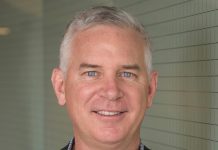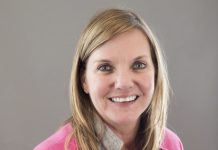Cody Candee co-founded Bounce with Aleksander Rendtlsev. With a background in product management, Cody began his career with Intuit, a large tech company, before deciding to start his own business.
With Bounce, Cody Candee has created a “short term storage marketplace” that lets users choose from a selection of places to “leave your things anywhere in the city.” Currently, people are using the Bounce app to “store luggage, backpacks, gym bags, and nearly anything else you could imagine.” According to Cody, Bounce works similar to “train station lockers” found in Europe and Asia, except they partner with local business and hotels that can afford extra space.
After launching the mobile app for Bounce, Cody Candee quickly saw the product shoot straight to the top on Product Hunt. The company had started operations in New York City, and shortly after, they have been named “The Best Luggage Storage Provider in NYC.” They also set up shop in San Francisco, and soon they had moved into the most locations for luggage storage in the city. They have also begun expanding to other cities as well.
Within the first seven months of starting Bounce, Cody Candee saw the company grow to earn more than $100,000 of annualized revenue.
Check out more interviews with storage innovators here.
I think that following advice without first absorbing it and processing how relevant it is to your own situation is always a mistake. Cody Candee, Bounce
Jerome Knyszewski: What do you think makes your company stand out? Can you share a story?
Cody Candee: I think the speed at which we iterate and scale makes for a uniquely fun adventure at Bounce. On literally the first day of Bounce, I was riding around on a bicycle picking up users’ bags. We’d just put up a splash page with a phone number and Google Ads. It worked, we got to talk to customers and learn what to build, and we were off to the races.
Later, when we decided to look at launching in Europe, we managed to get coverage across the entire continent in about 3 months. Soon after that we started to reach into Asia, Oceania, Africa, and South America. At the same time, we’re also experimenting with new products that we want to build on top of our current network. That’s how we ended up building and launching Package Acceptance in just a couple of weeks.
Jerome Knyszewski: Often leaders are asked to share the best advice they received. But let’s reverse the question. Can you share a story about advice you’ve received that you now wish you never followed?
Cody Candee: I think that following advice without first absorbing it and processing how relevant it is to your own situation is always a mistake. As the decision-maker, you are almost always the right person to intuitively know what you should or shouldn’t do next, but it’s easy to put your intuition to one side if you’re given advice by someone with more experience who generally knows what they’re talking about.
There’s not any one piece of advice that I wish I’d never followed. Every experience is one you can learn from. But there have definitely been moments when I’ve followed fantastic advice that wasn’t necessarily the right fit for the moment. For example, we had several experienced individuals really push for us to develop a mobile app immediately. In hindsight, while it was really important to make a mobile app available to our users, we would probably have been better off delaying it for a while and shipping some growth-related features first. This would have gotten us more users faster, which was the goal at the time.
Jerome Knyszewski: You are a successful business leader. Which three character traits do you think were most instrumental to your success? Can you please share a story or example for each?
Cody Candee: The three traits that have helped Bounce to grow to where we are today have been persistence, putting our customers at the center of everything we do, and being unafraid to ask for help.
- Persistence:
If you really want something and you keep going after it until you get it, I think you will generally always get it. When I was graduating high school, there was one university I wanted to go to — the University of Wisconsin. They rejected me 3 times in 1 application period. I wanted to go there more than anywhere and thought that I would be a great student for them. So I kept doing everything I could to change their mind. That included sending 10 more letters of recommendation, filling out every essay in the option pool of “pick 3 of the 10 topics and write an essay,” and doing everything else I could think of to increase my chances of getting in, like further academic and extracurricular achievements. I was probably the most active senior, given that this was a time when everyone else had known where they were going to college and were coasting. In the end, they let me in and I was the very last freshman admitted to my 6000+ student class.
- Product & customer centricity:
I think you need to focus on the customer experience to really win them over and create brand trust. At Bounce, we constantly go through the user flow and think about how we can make it seamless and beautiful. We often hear that people ended up using us because we designed our site/product in a way that meant they felt they could trust it.
- Asking for help:
I ask people for help all the time (and also give help to those who ask). It’s a superpower because it means I’m constantly learning from folks who know a particular domain far better than I do. For example, during fundraising, I was lucky enough to get introductions to dozens of investors and many of those conversations resulted in checks for Bounce.
If you really want something and you keep going after it until you get it, I think you will generally always get it.
Jerome Knyszewski: Which tips would you recommend to your colleagues in your industry to help them to thrive and not “burn out”?
Cody Candee: Create really strong alignment between your work and your purpose. You need to find the work that you love and do more of that. On the other side, learn what you enjoy doing least and find a way to delegate it. For example, I love the product work, and I prefer to steer clear of accounting.
Jerome Knyszewski: What are the most common mistakes you have seen CEOs & founders make when they start a business? What can be done to avoid those errors?
Cody Candee: A lot of people who start a business get really caught up in the motions of starting a company — the set-up, incorporation, things like that. They’re important, of course, but the reality is that you need to focus on adding value to your customers. Instead, I think you should focus more on getting customers knocking on your door and asking for your product first. Then you can focus more on the granular detail of how you want to set up your business.
Everything is about the people. Cody Candee
Jerome Knyszewski: In your experience, which aspect of running a company tends to be most underestimated? Can you explain or give an example?
Cody Candee: People. Everything is about the people. They say hiring people is an art, and letting people go is one of the most challenging tasks a boss will face. I think if you can develop a great sense for the people-side of your business, then you can accelerate your success. I had this sales function that I struggled with for several years. Our first hire was a 10/10 in terms of passion and enthusiasm, which at the time I thought was the only thing that mattered. But lack of experience became an issue and we just weren’t building up the processes that we needed. So then I hired someone who was 10/10 on the experience front — in hindsight, I think I was too focused on “swinging the other way.” Today we have a sales leader who really just nails everything, operates with scale, and figures out new things on his own. If I had to interview people for this role again, I would far better know what to look for and what to ask.
Jerome Knyszewski: You are a person of great influence. If you could start a movement that would bring the most amount of good to the most amount of people, what would that be? You never know what your idea can trigger. 🙂
Cody Candee: I would start a movement around shedding labels. People inherit or adopt so many labels that they then define themselves by, from the beginning of their lives and all the way through it. These might be political labels, identity labels, career labels, the list goes on, and I think that, ultimately, these are all very limiting. As people, we tend to adopt the beliefs and characteristics of our labels rather than think for ourselves, but we also see so many people restricted by labels that other people impose on them. If we could shed these labels that we put on ourselves and other people, I think we’d have more empathy, creativity, and positivity in the world.
Jerome Knyszewski: How can our readers further follow you online?
Cody Candee: You can find everything that Bounce does at our website and on Twitter, Instagram, and Facebook at @bounceyourstuff.
You can follow me on LinkedIn.
Jerome Knyszewski: This was very inspiring. Thank you so much for the time you spent with this!
Cody Candee: Thanks for having me!





